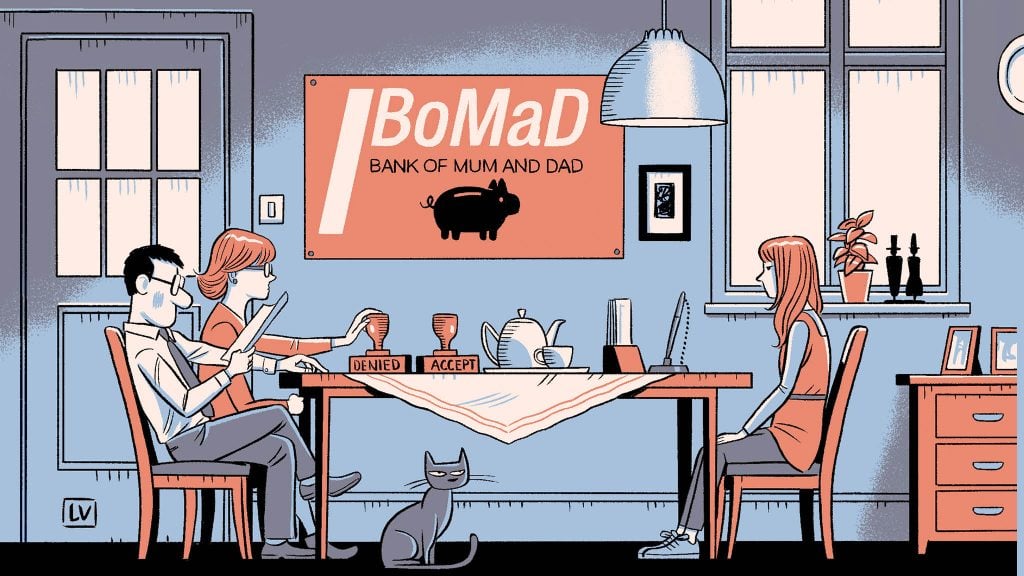Young adults are increasingly relying on financial help from their parents in order to buy their first homes.

In fact, the extent of this financial assistance is so great, that if parents were considered a financial institution, they would be the seventh largest mortgage lender in the U.S.
The surprising finding was announced in a study published this week by the multinational financial services institution Legal & General Group. It found that parents and grandparents helped to support the purchase of $317 billion worth of property, or around 1.2 million homes, in 2018.
Around 20 percent of those properties were bought thanks to a gift or interest free loan from family members, the study revealed. The average amount gifted or loaned to young adults by their families was $39,000.
The Pacific region saw the greatest share of young adults receiving financial help in buying; the Rocky Mountain region saw the lowest.
The study also found that 51 percent of prospective home buyers aged 35 or less said they expect to receive financial help from family or friends when they purchase a home. Meanwhile, those in that age group who’ve already bought a home said they would have had to delay buying by at least three years if not for their family’s assistance.
“For many, perhaps most,young adults, buying a house without help is an increasingly unattainable goal,” said Nigel Wilson, chief executive at Legal & General Group.
Still, Wilson said it is a “worrisome trend” that so many young adults are relying on help from family and friends to buy a home.
He said that those family members and friends who provide financial assistance may risk putting their own finances in jeopardy in order to do so.
For instance, they reported taking out a loan (15 percent), raiding their 401(k) savings (8 percent), downsizing their own home (6 percent), or coming out of retirement (3 percent) in order to get their hands on the necessary cash, the study showed. The study authors warn that too many of the younger generation may be dependent on their parents and grandparents to buy a home, even if it comes at a financial strain to the gift giver.
Wilson said the so-called “Bank of Mom and Dad” is a reflection of a housing market that’s beleaguered by significant problems with the supply and demand of appropriate types of housing, especially affordable housing.
“As the population changes and the millennial generation strives to join the homeowning democracy, new thinking is due on meeting the needs and aspirations of Americans,” Wilson said.